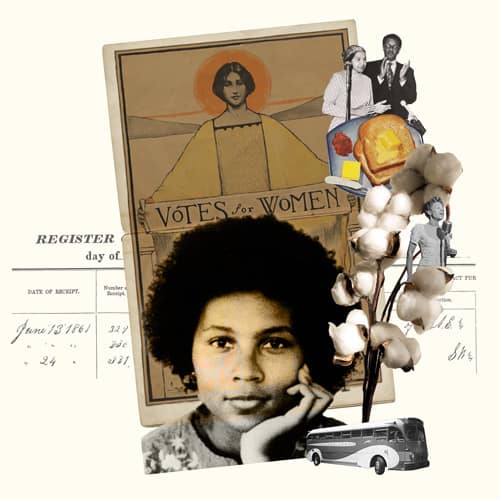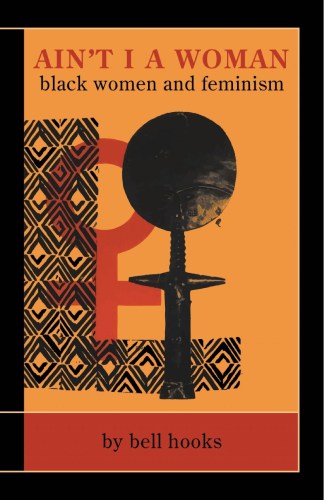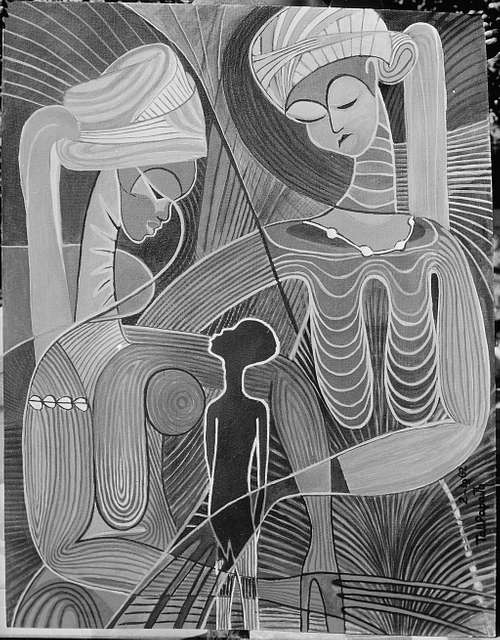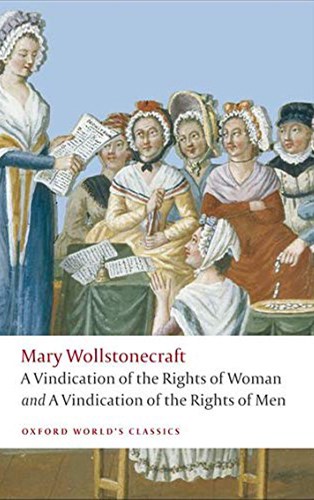No other group in America has so had their identity socialized out of existence as have black women (6).
bell hooks

Ain’t I a Woman: Black Women & Feminism
bell hooks

Ain’t I a Woman: Black Women and Feminism. New York: Routledge 2015.
Hooks traces feminist, abolitionist, and civil rights movements in the United States to analyze the intersection, or in most cases, the absence of intersection, between feminism and anti-racist movements.
She makes clear how black women have been doubly oppressed since slavery by both sexism and racism. Feminism has failed to align with abolitionist and civil rights movements; feminist movements have largely championed the interests of middle-class white women. In addition, civil rights movements have not adequately supported women’s rights in the fight for racial justice. As a result, black women have been largely invisible to both anti-racist and feminist movements in America.
Why This Text is Transformative?
It is the first major study looking at the intersection of racism and sexism in the lives of black women.
This text shines a light on a major gap in feminism and civil rights movements and traces the damaging and pervasive oppression and disregard for black women. She makes visible and clear the struggles of black women in America while also tracing the origins and roots of a dual racial and sexist oppression through slavery and into the 20th century. It is the first major study looking at the intersection of racism and sexism in the lives of black women.
A Focused Selection
Study Questions

Introduction, Chapter 1: sexism and the black female slave experience and Chapter 5 black women and feminism
1) hooks traces and analyzes different constructions of masculinity and of black masculinity in particular in her text. In our current society, is it possible to define masculinity? Is this definition in any way predicated on the understanding of women as weaker or less powerful? Does this definition of masculinity shift across class, ethnicity, and race? Why is this important to think about?
2) In her text, hooks talks about the iconic vision of the American woman and the American man in the 1950s. How did these ideals impact both black men and black women? In America today, how would you describe the iconic American woman and man? What are some of the problems iconic and ideal images of men and women create? How and why are these ideals often problematic?
3) It may seem obvious in the 21st century to say that our lives are shaped by many factors, like sex and race. But, do you think hooks’ point that they are often divorced from one another in politics and social movements still rings true? Can you think of examples? Why do you think this happens and why is it problematic?
4) Are there other social factors that shape black women’s lives beside race and sex that hooks does not completely address? What other parts of our identities shape our movement through society in America?
5) Hooks’ titles her text after Sojourner Truth’s well known abolitionist speech, “Ain’t I a Woman.” Read and listen to the speech in the links below. Why do you think hooks used this title?
- Sojourner Truth: Ain’t I A Woman? (U.S. National Park Service) (nps.gov)
- https://www.youtube.com/watch?v=Ry_i8w2rdQY Kerri Washington
- https://www.youtube.com/watch?v=uJucKgFosu4 Alfre Woodard
6) What would a movement that fought against racism and sexism look like or do? What does hooks say about it in Chapter 5?
7) Did you find reading hooks’ analysis and arguments about the relationship between sexism and racism transformative to your thinking or understanding of the world at all? Explain.
Building Bridges
Several of the texts on this list illustrate the “divorce” between sex and race that hooks analyzes and others, like the Hurston and Walker, illustrate a bridge between them.
Mary Wollstonecraft, A Vindication of the Rights of Woman
Kate Chopin, The Awakening
Selections from Frederick Douglass
Selections from Martin Luther King
Zora Neale Hurtson’s Their Eyes Were Watching God
Walker, Alice. The Color Purple
Supplemental Resources
bell hooks 1999 interview Word on Word
Text Mapping
Discipline Mapping
Political Science/Government
History
Area Studies
Page Contributor



